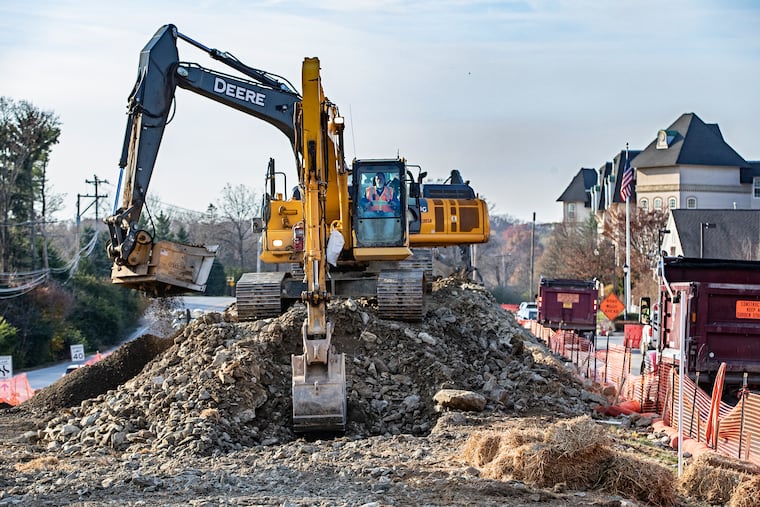Two Pa. constables were cleared of bribery charges, convicted of a lesser count in Mariner pipeline case
The case, a prosecutor said, was a matter of transparency, and gave jurors a rare opportunity to enforce the standards of good government.

A Chester County jury Wednesday convicted two state constables of failing to disclose money they earned working as private security guards for the Mariner East pipeline.
At the outset of the three-day trial in West Chester, Kareem Johnson, 49, and Michael Robel, 59, faced significantly more serious offenses, including bribery and official oppression. But Common Pleas Court Judge Jeffrey Sommer dismissed all but one charge — violating the state’s Ethics Act by not accurately completing a statement of financial interest, a third-degree misdemeanor — in the middle of the trial, ruling that prosecutors had failed to present evidence supporting the others.
After deliberating for a little more than an hour, jurors found them guilty of that charge.
The two constables, prosecutors had told jurors, displayed their guns and badges in 2018 while patrolling the pipeline in West Whiteland Township and pressured two journalists and a county detective to identify themselves and leave the public street where they parked. But after the dismissal of the more serious charges, defense attorneys for Robel and Johnson told jurors that the case against their clients was rooted in the “pipeline and the politics associated with it.”
The Mariner East pipeline project operated by Energy Transfer Partners has garnered almost constant criticism from residents and activists.
In 2019, then-District Attorney Thomas P. Hogan brought criminal charges against the head of the company’s pipeline security division, as well as four members of private security firms. He alleged the company hired 19 state constables in an illegal “buy-a-badge scheme.”
But gradually those charges were dismissed or resolved without convictions, until only the charges against Robel and Johnson remained.
Robel’s attorney, Giuseppe Rosselli, on Wednesday called the remaining misdemeanor a “paperwork crime,” waving it away as little more than a clerical error.
“These two men who dedicated their lives to serving their communities got caught up in something much bigger than themselves,” Rosselli told jurors in his closing statement. “If the pipeline wasn’t involved, you wouldn’t know their names.”
First Assistant District Attorney Michael Barry asserted that the men knew they were supposed to report the salaries they had collected from Energy Transfer Partners through a subcontractor but chose instead to hide that money.
Robel earned about $28,000, and Johnson was paid about $37,000.
The case, Barry said, was a matter of transparency, and gave jurors a rare opportunity to enforce the standards of good government.
Both defendants took the stand during the trial, testifying that they were confused by the financial disclosure forms. Barry undermined that assertion, noting for jurors that each cashed more than 20 checks for their work on the pipeline, and that Johnson had correctly detailed other income he made from another business he ran.
“We’re supposed to believe that these men weren’t able to understand a very simple question,” Barry said. “Does that make sense to you? Or is it, as I posited, a lack of transparency?”
After the verdict, the judge deferred sentencing for the two men.
Outside the courthouse, attorneys for the defendants said they were pleased with the trial’s outcome, despite the conviction on the minor charge.
”Mike Robel and Kareem Johnson were collateral damage of a prosecution aimed at delaying the construction of the pipeline over the last four years,“ Rosselli said. “Despite the arrest of seven people, no one was convicted of anything related to the construction of the pipeline.”